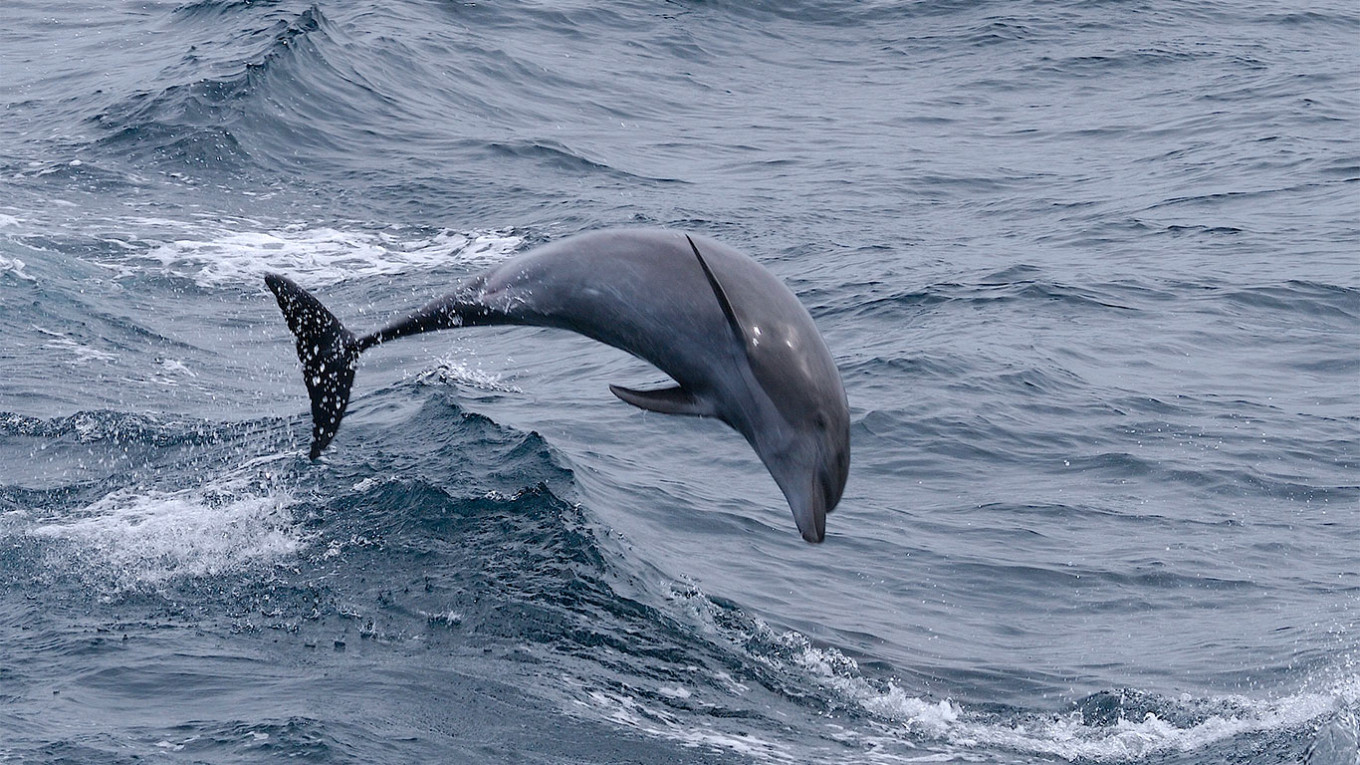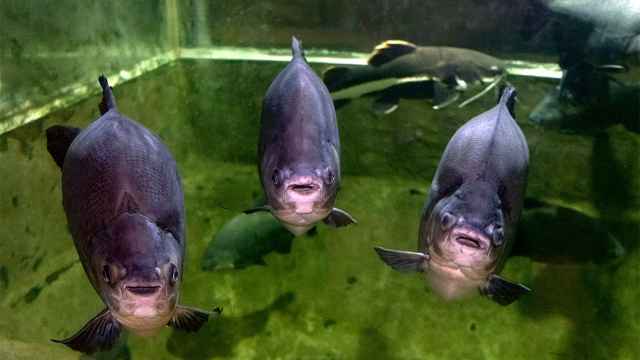The Russian Navy has bolstered security at its Black Sea Fleet base in annexed Crimea with the use of trained dolphins, Britain’s defense ministry said Friday.
Citing satellite imagery, the British military said the number of floating mammal pens in the harbor of Crimea’s port city of Sevastopol has nearly doubled from April to June.
The pens are thought to house bottlenose dolphins that “are highly likely intended to counter enemy divers,” the British defense ministry said.
The Soviet Union used the Sevastopol base in the late 1960s to train marine mammals for military purposes such as planting explosives on ships or searching for mines. Whether they actually engaged in military activity is disputed, but the dolphins were later used to locate lost military and scientific equipment.
The Russian Navy denied a 2012 report saying it was developing a program training dolphins to attack enemy divers with knives or pistols attached to their heads. The Soviet program was also thought to have included training on how to kill underwater enemies.
Bottlenose dolphins, the best-known and most common members of the oceanic dolphin family, are known for their cognitive ability and curiosity toward humans.
Britain’s defense ministry said Friday that, since the summer of 2022 when the Black Sea Fleet was mauled in the first 200 days since Moscow ordered troops to invade Ukraine, Russia’s Navy has invested “major enhancements” to security.
Satellite images showed four layers of nets and booms across Sevastopol harbor as Russian-installed authorities moved to fortify Crimea following a series of attacks on military, energy and transport targets there.
A Message from The Moscow Times:
Dear readers,
We are facing unprecedented challenges. Russia's Prosecutor General's Office has designated The Moscow Times as an "undesirable" organization, criminalizing our work and putting our staff at risk of prosecution. This follows our earlier unjust labeling as a "foreign agent."
These actions are direct attempts to silence independent journalism in Russia. The authorities claim our work "discredits the decisions of the Russian leadership." We see things differently: we strive to provide accurate, unbiased reporting on Russia.
We, the journalists of The Moscow Times, refuse to be silenced. But to continue our work, we need your help.
Your support, no matter how small, makes a world of difference. If you can, please support us monthly starting from just $2. It's quick to set up, and every contribution makes a significant impact.
By supporting The Moscow Times, you're defending open, independent journalism in the face of repression. Thank you for standing with us.
Remind me later.






